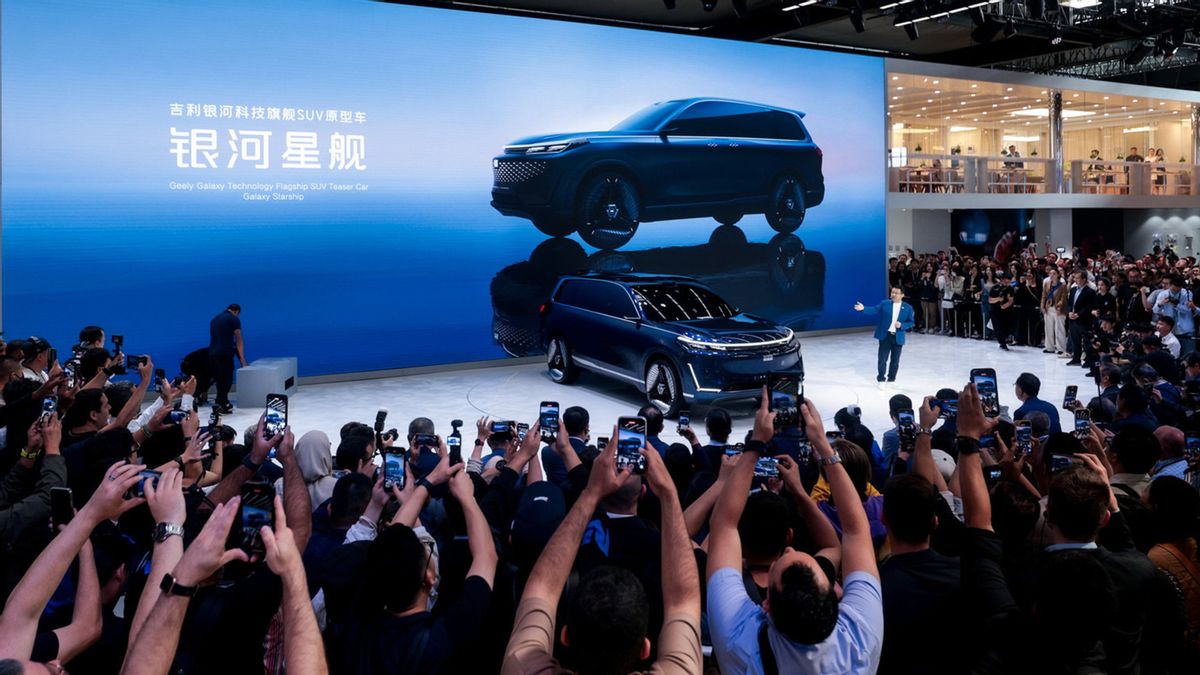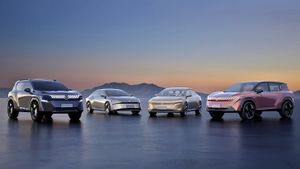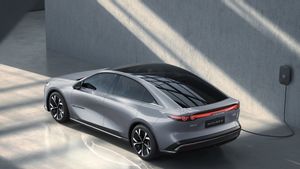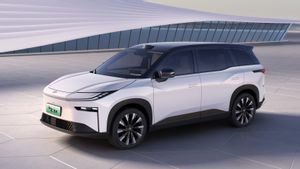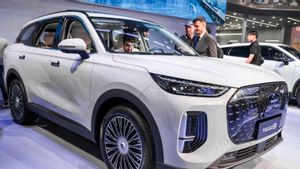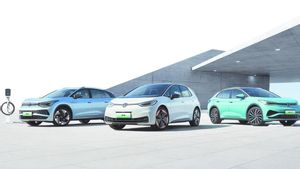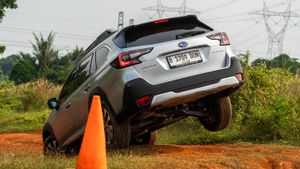JAKARTA - There is something different from the Chinese Auto Show or Beijing International Automotive Exhibition (Beijing Auto Show) 2024 this time, it can even be said that its excitement exceeds the automotive exhibition that has taken place in the world in the past year.
Not only was a number of well-known manufacturers, both foreign, European, Japanese, and South Korean) as well as local, a number of seasoned automotive media from all over the world also came to cover the exhibition which took place from April 25 to May 4, 2024 at the China International Exhibition Center (Shunyi Hall, Beijing). All of them, either manufacturers or media covering can be monitored from their respective Twitter (X) social media accounts.
Back and forth, China has long been the world's largest automotive market even today, but the difference is that in recent years local Chinese manufacturers have started to show off not only domestically but also starting to dominate the global automotive world.
As a result, fighting to capture consumer attention, especially the Chinese electric car market, is heating up. Local manufacturers, including those with old government-owned players, are competing to submerge technology and "tech luxury" features that have never been seen before into their electric cars (EVs). The price of the car? It could be as cheap as 20,000 US dollars (around Rp. 324 million), well below the average new car price in the United States, which currently reaches more than US$ 48,000 (around Rp. 700 million).
Analysts, reported by Reuters on April 26, see this trend as a tough challenge for foreign brands in China, including Tesla and Volkswagen, both of which have best-selling EVs there. Last year alone, BYD surprised the auto industry with the Seagull EV, which is now priced at under $10.000 at its launch at the Shanghai automotive exhibition. Seagull EV is currently the fourth best-selling EV in China.
Focus On "Tech Luxury"
Other Chinese manufacturers, including state-owned companies, do not want to remain silent. They are competing to present EVs with a price tag below 10,000 US dollars at the recently opened Beijing automotive exhibition. The market is also busy with EVs and plug-in hybrids (PHEVs) at prices starting at 20,000 US dollars that offer interior features and technologies that used to be premium.
Chinese consumers, especially young ones, now see "tech luxury" as an important consideration. Chinese manufacturers are also taking the lead in presenting these features.
"This is very different from the Western market where car buyers still really consider the quality of assembly, reliability, driving, and handling," said Raymond Tsang, partner of Shanghai-based Bain & Company.
In an effort to stand out, some Chinese brands offer unique and entertaining features. Baojun Yep, a mini-EV of SAIC-GM-Wuling joint-venture, which is priced at around $11,000, has a screen on the back door. Drivers can display messages such as "thank you" or a heart emoji to give appreciation to other road users.
There is another Zeekr 001, a premium Chinese electric sedan priced at around $37,000, has a front grip that can play music and features thumbs up emoji animations over and over repeatedly when it stops.
SEE ALSO:
Challenges For Foreign Brands
Historically, the brands of the United States and Europe as well as Japan are considered more luxurious and quality than the Chinese brand. However, that view is starting to change. "The foreign brand aura is close to disappearing," analyst McKinsey said in a report on their views on China's automotive market released in March.
On the other hand, Volkswagen's Chinese President, Ralf Brandstetter, said that it plans to present the "Chinese-style wow effect" desired by technology-driven consumers there.
In addition, Mercedes-Benz CEO Ola Kaellenius, said that their digital technology team in China is dedicated to meeting China's younger and technology-oriented consumer tastes.
"In the latest E-Class, you can sing karaoke. Maybe that feature doesn't exist in Germany. But maybe it should be there. Because consumers here like it," said Kaellenius.
The German executives said their cars had the ability to add new features with "China speed" via wireless software updates.
The race to present these unique luxurious features has become an interesting phenomenon in the Chinese electric car market. Can this innovation be an advantage in itself or is it trapped into a gimmick? We'll see how it develops.
The English, Chinese, Japanese, Arabic, and French versions are automatically generated by the AI. So there may still be inaccuracies in translating, please always see Indonesian as our main language. (system supported by DigitalSiber.id)
